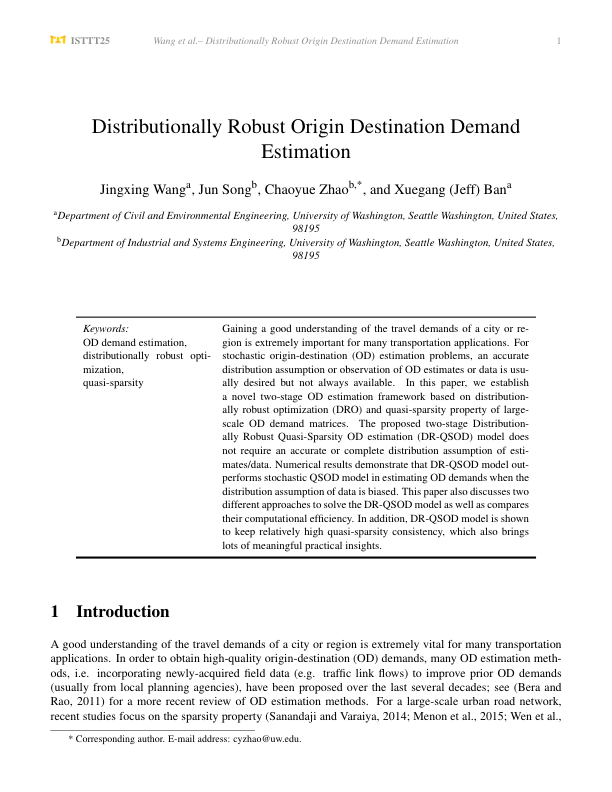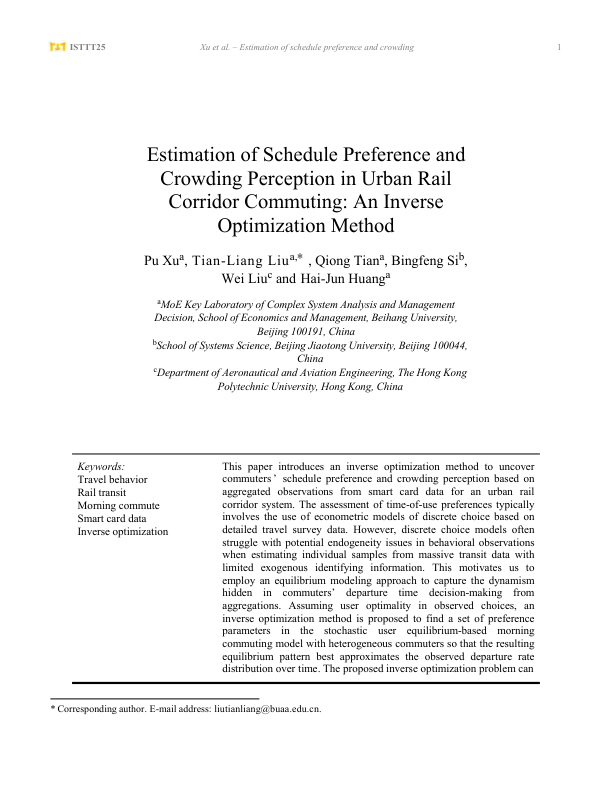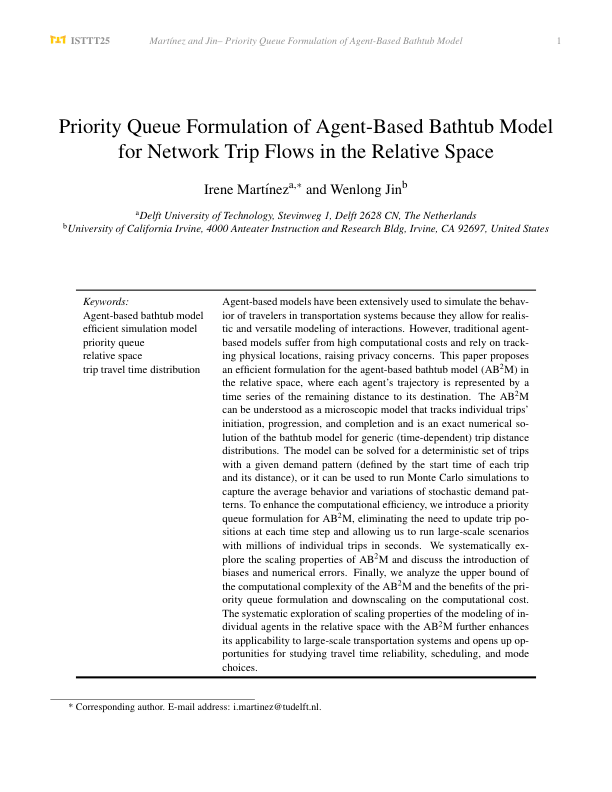Lightning Talk 1: Two-Step Quadratic Programming for Physically Meaningful Smoothing of Longitudinal Vehicle Trajectories
Title: Two-Step Quadratic Programming for Physically Meaningful Smoothing of Longitudinal Vehicle Trajectories
Authors: Ximeng Fan, Wen-Long Jin, Penghang Yin
Abstract: Longitudinal vehicle trajectories suffer from errors and noise due to detection and extraction techniques, challenging their applications. Existing smoothing methods either lack physical meaning or cannot ensure solution existence and uniqueness. To address this, we propose a two-step quadratic programming method that aligns smoothed speeds and hig...
Keywords: Longitudinal vehicle trajectories; discrepancy and roughness; two-step quadratic programming; existence and uniqueness; NGSIM and highD data




